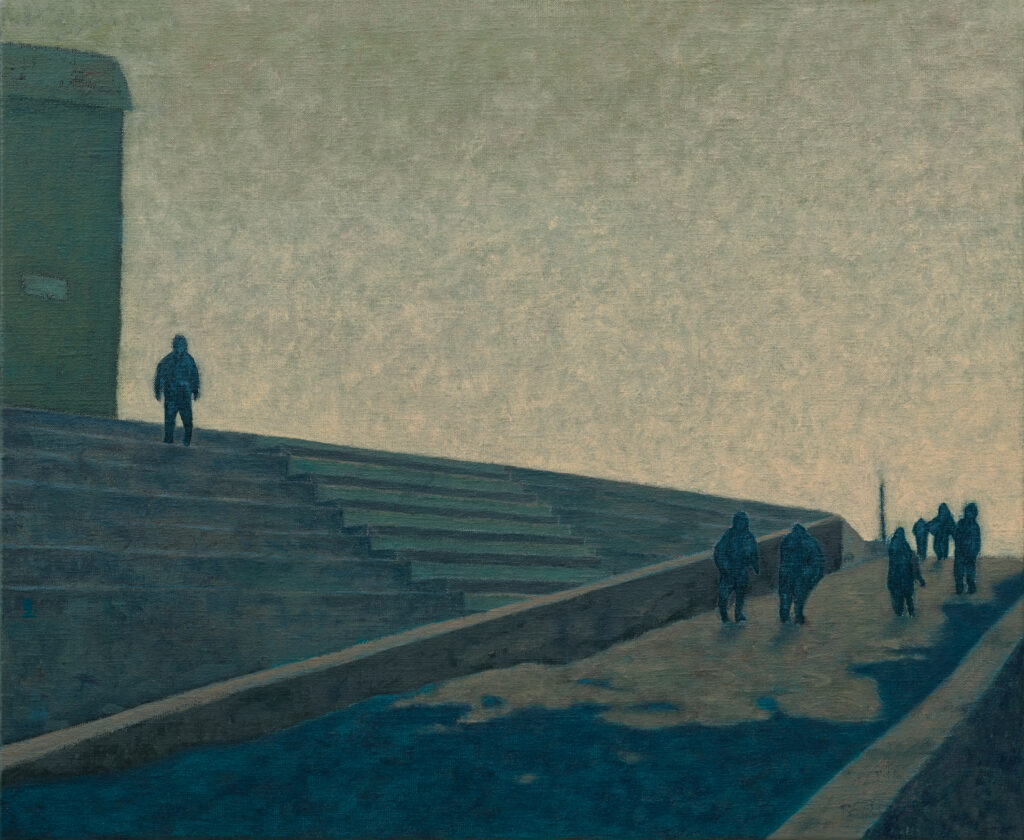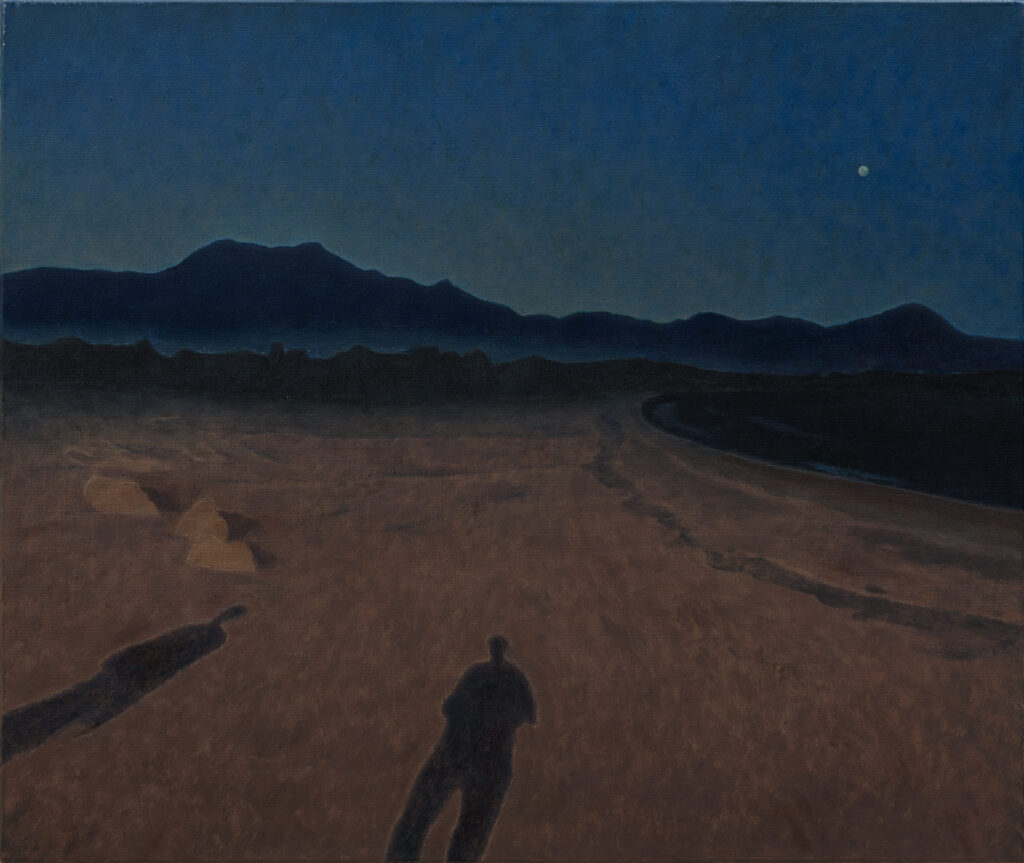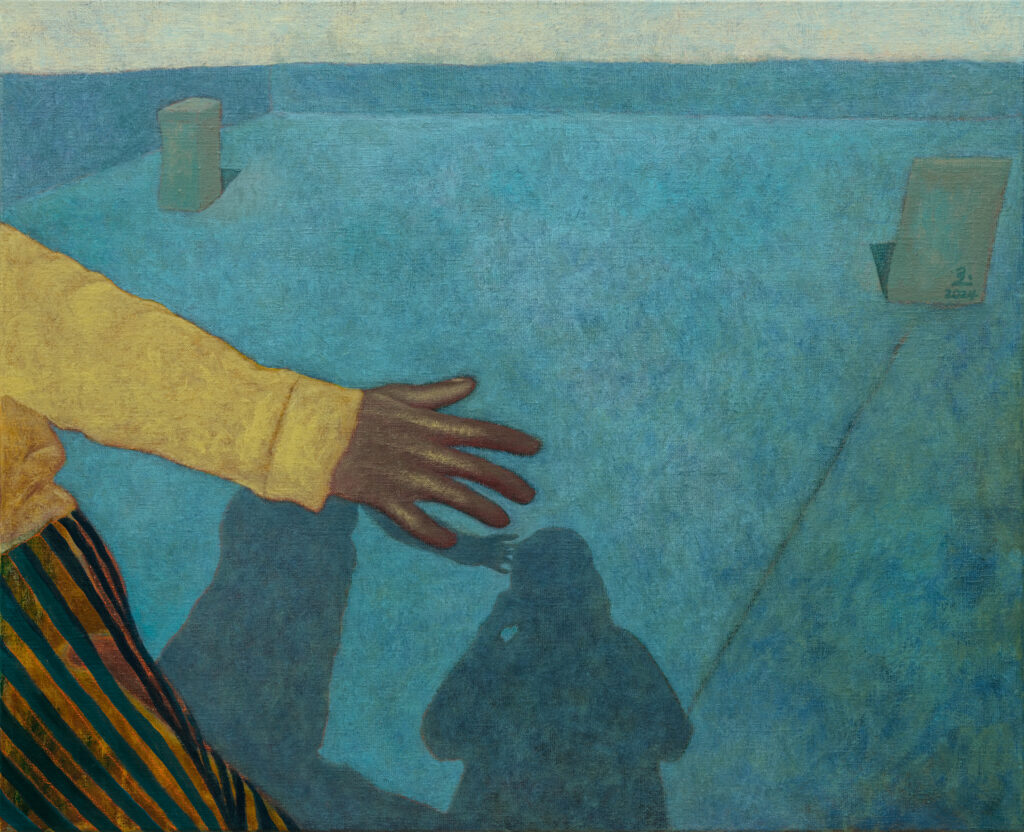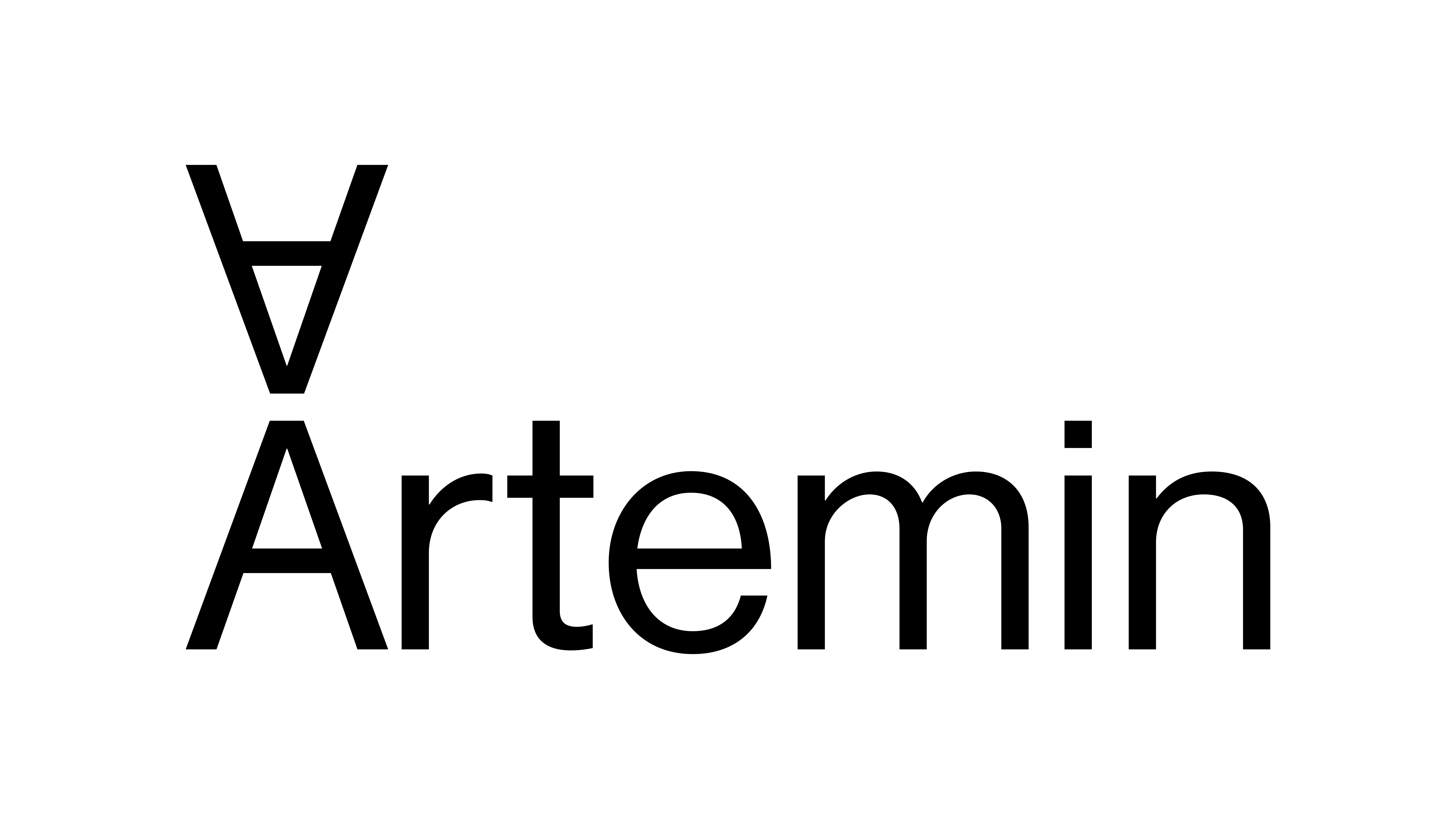INTERVIEW: Still Telling
[ Exclusive Interview ] ARTIST: YuChun Chen
1. What is the concept behind the exhibition title “Still Telling”? Why choose the imagery of “anonymity” and “still telling”?
YuChun: The English title Still Telling came from the curator, and I really liked it—continuous, ever-changing, like a river.
The Mandarin title was something we coordinated together. “Anonymous” represents ambiguity, neutrality, and openness. I hope this allows viewers to more easily enter my paintings and extend the stories with me.
2. How did you decide on the theme of this exhibition? From self-reflection in your last show to this new series, how has your creative concept evolved or continued?
YuChun: I don’t usually plan much in advance. I paint a lot based on intuition, then select the pieces that resonate with each other. The core idea remains the same: an ongoing curiosity about the relationship between time and memory.
3. In some of the works, there are philosophical reflections on fate and destiny, as if swaying between steering one’s own life and being lost in direction. Could you share more about this idea?
YuChun: I really wonder what is fate? Flowing time? Resonant rhythm? Is it both a blessing and a burden?
I am not thinking about divination or control, but more about whether there is a force operating behind individuals, races, and lands that are named as countries. If fate truly exists, does it weave some kind of relationship or pattern? But honestly, I can’t describe it clearly. I can only attempt to vaguely visualize it through painting.

4. This time, several works depict hands. How do hands connect with the theme of “anonymity”? Could you share more about what you hope to express through them?
Yuchun: Hands are so versatile. They carry traces of work, are full of emotion, and have something mysterious, almost magical about them. That sense of mystery keeps drawing me in to try and capture them. What I hope to convey through hands might be more subtle, nuanced emotions.
5. You have mentioned before that memory is important to you. What kind of memories motivated this new body of work?
YuChun: I think I am a little obsessed with reshaping memory. Though most of the images come from places I have actually visited, my strongest motivation is blending in my imagination, like writing a tiny novel on the canvas.
6. Compared to the last show, which was about self-exploration, is this exhibition more like a series of short films made up of fragments of memory? What sparked this idea?
YuChun: Each exhibition, regardless of style changes, is a response to the specific time and context I am in. At the core, I am still exploring the unknown aspects of myself.

7. Compared to your previously subdued color palette, yellow appears more prominently in works like Rooftop, Circular Time, and The Sofa. Could you share the inspiration behind this choice?
YuChun: Yellow is a magical color. Its various shades can be warm yet lonely, bright yet unsettling. It doesn’t blend easily with others, but without it, something is missing. Hence, I decided to spend some time getting to know it better.
8. What inner connections exist among the works in this exhibition? What kind of narrative do you hope the audience perceives?
YuChun: Although the imagery mostly comes from memories I have dredged up, the storytelling is open-ended and meant to unfold freely.
I hope to evoke an intangible, hard-to-describe feeling, like a static form of “augmented reality,” where the imagined world within the paintings and the viewer’s inner world interact continuously in the space, until both gradually fade and disappear.
9. Beyond being an artist, you have also worked in other fields. How have these different experiences influenced your artistic practice?
YuChun: Those experiences made me realize how precious it is to be able to paint the way I do now.

10. You have described your position in your works as that of an observer. Your earlier compositions tended to have a more distant focal point. Though this time, many have a stronger sense of presence. What considerations went into that shift in perspective?
YuChun: I mostly work intuitively and rarely sketch beforehand. I often make changes while painting, so the final result often differs a lot from the initial idea.
I wasn’t consciously aiming for a more immersive perspective, but if that is there, maybe it means I have come a little closer to myself and I am more willing to be present. Or perhaps I’m trying to move between real spaces and imagined scenarios.
11. As a creator, how has your mindset changed between the last exhibition and this one?
YuChun: Art is a field that places a lot of emphasis on talent. I have come to understand and accept that my own talent is quite limited. But rather than being discouraged, I am now more eager to stay open to the sensations of being alive—letting my eyes remain at this strange crossroad, and continuing to paint with a looser, more generous mindset.






